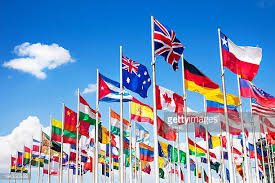Lessons Learned From The Service Of Gays And Lesbians In Allied Militaries
On May 19, 2010, experts from the United Kingdom, Israel, Canada, Sweden, and the Netherlands gathered at conference in Washington, D.C. to discuss the lessons from the open military service of gays and lesbians in each nation’s armed forces.
The Brookings Institution and the Palm Center co-hosted this event, which included ministers, officers, scholars, veterans and active-duty Generals. This summary identifies key points of discussion and highlights quotes from these experts on central issues of debate.
Issue #1: What happened? What was the impact of open service on the military?
Australia (General Willis): “I must say the lifting of the homosexual ban in the ADF was a bit like the Y2K issue. There’s a lot of bluster and screaming and yelling and plans, and everyone had an opinion about it, but it came and went, and that was it, nothing more was heard about it. It was a non-event and it continues to be a non-event in Australia.”
Canada – (General Semianiw): “I state this unequivocally here, there is no negative impact on operational effectiveness. There has been no impact to reflect on operational effectiveness by having men and women of any sexual orientation fighting together, be it in Afghanistan, from what we’ve seen, be it in Iraq, be it on many key peacekeeping missions over the many, many years.”
United Kingdom – (Commander Jones): “There were concerns in the late 1990’s about officers and men walking across the gangways of ships in feather boas and high heels, that’s just not the reality of the people that serve in our military.”
Take away Points:
1.) Ending policies that discriminate against gay and lesbian service members has not had any negative impact on military readiness
2.) Concerns that lifting gay ban would cause people to leave en masse have not been borne out
United Kingdom – (Commander Jones): “I think it’s certainly fair that — I believe it needs to be done swiftly. In the UK, in August, ’99, the ban was suspended, and it took about six months after that for the Armed Forces Code of Social Conduct to be implemented.”
Canada – (Karol Wenek, Director General, Mil. Personnel): “In Canada, the change was implemented quickly; it was unequivocally supported by senior leadership; the process was low key and explicitly communicated an expectation of normality in the work environment.”
Australia – (General Willis): “You should do it as quickly as you can no matter what circumstances. And I believe in the Australian circumstance, the rapid nature of it was one of the reasons why it was so successful.”
Issue #2: What are the lessons on how to implement open service?
Take away Points:
1.) It must be made clear that the new policy will be enforced consistently
2.) The key to an effective policy of openly gay service is strong signals of support for the new policy from leadership
3.) It must be made clear that the new policy will be enforced consistently and the focus should on behavior rather than identity or attitudes
Issue #3: Was there any increase in harassment?
Israel – (Mr. Kapara): “No, I have not heard of an increase in any violent event.”
Canada – (General Semianiw): “The answer is no, we did not see an increase in violence, particularly against homosexuals or issues that kind of drew from that.”
Australia – (General Willis): “In answer to the question on violence and harassment, no, none that we’re aware of.”
United Kingdom – (Commander Jones): “In terms of violent crime, I’d have to agree, no, although I would add that I have greater confidence today that incidents of intimidation or harassment, bullying, and victimization would be reported because the ban has been lifted, and that’s very important.”
Take away Points:
1.) Training should be concise, simple and promulgated quickly after the policy change.
2.) In some cases, such as that of the Israel Defense Forces, little training was promulgated because the policy there is to have no policy, effectively minimizing troop focus on sexual orientation.
Issue #4: Have there been improvements resulting from adopting non-discrimination?
Netherlands – (Col. Matthijssen): “We’re much more effective because we have an organizational culture and climate that people know that they can tell about who they are, and that’s what we encourage.”
Canada – (General Semianiw): “Our view is that we are stronger together by having a very inclusive military. By allowing men and women in uniform of any sexual orientation to be part of Canada’s military, the same men and women in uniform who die for the nation, Canada’s military is stronger and more unified, a fighting force that is grounded in the views as a sense of duty, a sense of fairness, and inclusiveness, something which our Canadian military is happy and proud to export around the world.”
Australia – (General Willis): “If you get ideas from 10 people, you get much better ideas from 10,000, so the more inclusive and the more diverse your base, the better you are. Diversity brings strength. Because we were in the lead in this in some respects in Australia, we became an employer of choice, and therefore, it became an advantage for the Australian Defense Force. It felt good to be on a team that was leading. Finally, we’ve only got a couple of outstanding issues, and one is the recognition of partnerships, how we recognize partners, and probably some gender identity issues that we’re working through at the moment in relation to transgender, but other than that, we’re all one team.”
